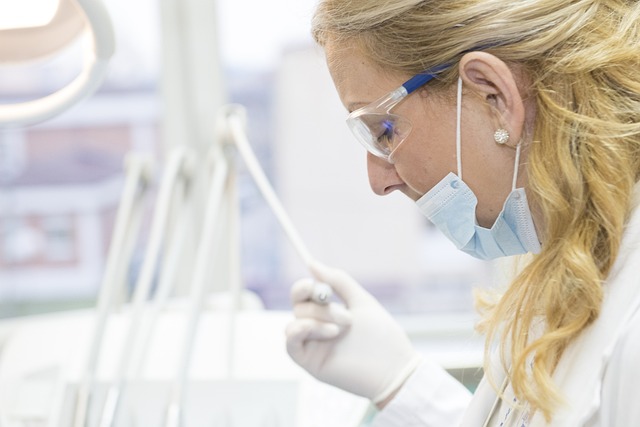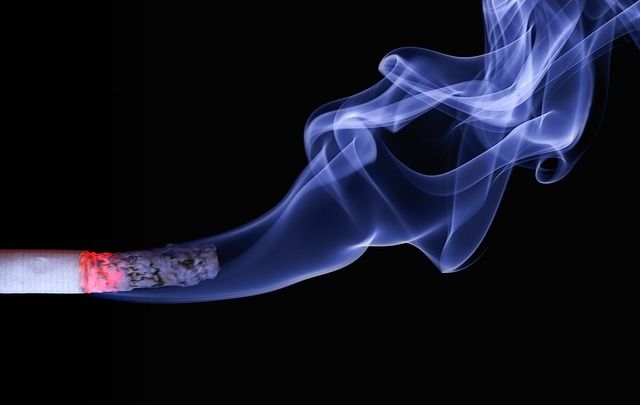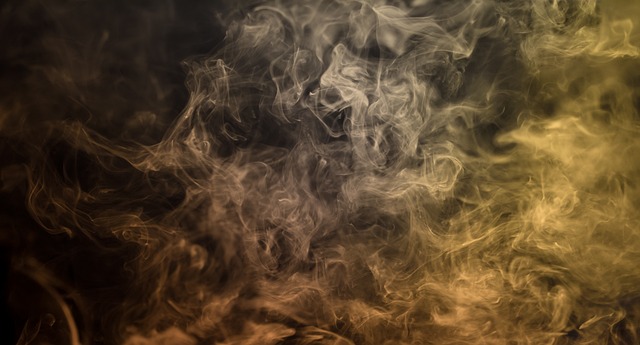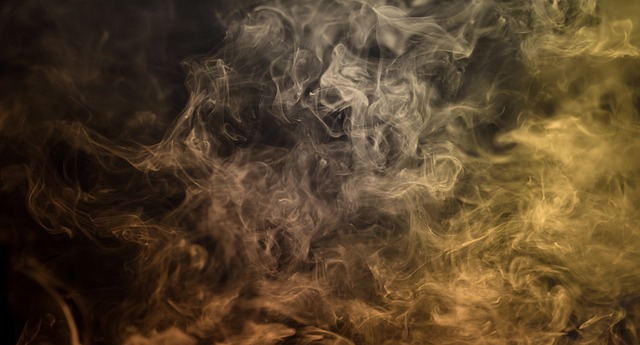Dental Hygiene After Smoking: What You Should Do
Maintaining a healthy smile is a top priority for many, but what happens when smoking becomes part of the equation? We all know that smoking poses a multitude of risks to our overall health, but have you ever considered the impact it has on our dental hygiene? In this article, we will delve into the world of dental hygiene after smoking, providing you with the knowledge and actionable steps you need to take in order to maintain a pristine smile. Whether you are a current smoker looking to improve your oral health or someone seeking advice for a loved one, we’ve got you covered. So, let’s explore the essential steps you should take to ensure your dental hygiene remains uncompromised, even in the face of smoking.
1. Understanding the Impact: How Smoking Affects Dental Health
Smoking has a significant impact on dental health, causing a range of problems that can affect both the appearance and function of teeth. Here are some ways in which smoking can negatively affect dental health:
- Stained Teeth: Smoking leads to yellowing of teeth due to the presence of tar and nicotine. This discoloration can be difficult to remove and may require professional teeth whitening procedures.
- Bad Breath: Smoking is a major cause of chronic bad breath. The chemicals in tobacco products can leave a foul odor in the mouth, which can be embarrassing and difficult to mask.
- Gum Disease: Smokers are at a higher risk of developing gum disease, as smoking weakens the immune system and restricts blood flow to the gums. This can lead to swollen, bleeding gums, and even tooth loss if left untreated.
- Delayed Healing: Smoking slows down the healing process, making it harder for the mouth to recover from dental procedures such as tooth extractions or oral surgeries.
Additionally, smoking increases the risk of oral cancer, which can be life-threatening. It is crucial for smokers to understand the detrimental effects of smoking on their dental health and take steps to quit smoking or seek professional help to minimize the damage caused. Quitting smoking not only improves dental health but also has numerous other health benefits, including reducing the risk of heart disease and lung cancer.

2. Developing a Post-Smoking Oral Care Routine: Essential Steps to Follow
Now that you have made the decision to quit smoking, it is important to develop a comprehensive oral care routine to undo the damage caused by years of tobacco use. By following these essential steps, you can improve the health of your teeth and gums, and maintain a fresh breath:
- Brushing twice a day: Brush your teeth thoroughly for two minutes, using a soft-bristled toothbrush and fluoride toothpaste. Pay extra attention to reach all surfaces of your teeth, including the back molars.
- Flossing daily: Flossing is crucial in removing plaque and debris from between your teeth and along the gumline. Make sure to use a gentle sawing motion and reach all the way down to the gumline.
- Rinsing with an antimicrobial mouthwash: After brushing and flossing, rinse your mouth with an antimicrobial mouthwash to kill bacteria and freshen your breath. Look for a mouthwash that is specifically designed to combat plaque and gingivitis.
Furthermore, it is essential to schedule regular dental check-ups with your dentist. They will be able to assess the condition of your oral health, provide professional cleanings, and address any concerns or issues that may arise. Remember, maintaining a post-smoking oral care routine is crucial in preventing further damage and ensuring a healthy smile for years to come.

3. Key Dental Hygiene Practices: Restoring Oral Health After Smoking
Dental hygiene is crucial for restoring oral health after smoking. To ensure your teeth and gums are in optimal condition, follow these key practices:
1. Regular Brushing: Brush your teeth at least twice a day using a soft-bristle toothbrush and fluoride toothpaste. Be sure to clean all surfaces of your teeth, including the front, back, and chewing surfaces.
2. Proper Flossing: Floss daily to remove plaque and debris from between your teeth. Use a gentle back-and-forth motion, making sure to reach below the gumline. This helps prevent gum disease and removes any tobacco residue that may linger.
3. Mouthwash: Rinse your mouth with an antimicrobial mouthwash to kill bacteria and freshen your breath. Look for a mouthwash that contains fluoride to strengthen your teeth.
4. Regular Dental Check-ups: Visit your dentist regularly for professional cleanings and check-ups. Your dentist can identify any oral health issues early on and provide appropriate treatment.
5. Quitting Smoking: The most important step in restoring oral health is to quit smoking altogether. This not only improves your oral health but also reduces the risk of developing serious health conditions such as oral cancer and gum disease.
By incorporating these key dental hygiene practices into your routine, you can restore and maintain good oral health after smoking. Remember, consistency and commitment are key to achieving optimal results.

4. Professional Dental Cleanings: Why They Are Vital for Ex-Smokers
Professional dental cleanings play a crucial role in maintaining oral health, especially for individuals who have quit smoking. Here’s why these cleanings are vital:
1. Removing stubborn plaque and tartar: Ex-smokers often experience a buildup of plaque and tartar on their teeth due to the effects of smoking. Professional cleanings by a dental hygienist can effectively remove this stubborn buildup, which is difficult to eliminate with regular brushing and flossing alone. Removing plaque and tartar not only enhances the appearance of your smile but also reduces the risk of gum disease and tooth decay.
2. Detecting early signs of oral cancer: Quitting smoking greatly reduces the risk of developing oral cancer. However, ex-smokers still need to be vigilant about their oral health. Regular dental cleanings allow dentists to examine your mouth for any early signs of oral cancer, such as unusual growths or sores. Early detection of oral cancer significantly improves the chances of successful treatment and recovery.

5. Choosing the Right Oral Care Products: A Guide for Post-Smoking Dental Hygiene
When it comes to maintaining oral hygiene after quitting smoking, choosing the right oral care products is crucial. Here’s a comprehensive guide to help you select the most suitable products for your post-smoking dental needs:
Toothbrush:
- Opt for a soft-bristled toothbrush to avoid causing irritation to your gums.
- Consider using an electric toothbrush that provides a more thorough clean and removes plaque effectively.
- Replace your toothbrush every three to four months or sooner if the bristles become frayed.
Toothpaste:
- Look for toothpaste that contains fluoride, as it helps strengthen enamel and prevents tooth decay.
- Consider using a whitening toothpaste to help remove surface stains caused by smoking.
- Choose toothpaste that suits your specific needs, such as toothpaste for sensitive teeth or gum health.
By carefully selecting the right oral care products, you can effectively maintain your dental health after quitting smoking. Remember to consult with your dentist for personalized recommendations based on your oral health condition.
6. Maintaining a Healthy Smile: Long-term Strategies for Dental Wellness
When it comes to maintaining a healthy smile, there are several long-term strategies that can contribute to your dental wellness. By following these tips, you can ensure that your teeth and gums stay in great shape for years to come.
Regular Dental Check-ups: Visiting your dentist on a regular basis is crucial for maintaining a healthy smile. Regular check-ups allow your dentist to identify any potential dental issues early on and provide necessary treatments. Aim to visit your dentist at least twice a year for a comprehensive examination and professional cleaning.
- Practice Proper Oral Hygiene: Brushing your teeth at least twice a day and flossing daily are essential habits for dental wellness. Use a fluoride toothpaste and a soft-bristled toothbrush to effectively remove plaque and prevent tooth decay.
- Eat a Balanced Diet: A nutritious diet plays a significant role in maintaining a healthy smile. Limit your consumption of sugary and acidic foods as they can contribute to tooth decay. Instead, opt for a well-balanced diet that includes plenty of fruits, vegetables, lean proteins, and dairy products.
- Quit Smoking: Smoking not only affects your overall health but also has detrimental effects on your oral health. It can lead to stained teeth, bad breath, gum disease, and even oral cancer. Quitting smoking is one of the best things you can do to maintain a healthy smile.
By following these long-term strategies for dental wellness, you can ensure that your smile remains healthy and beautiful. Remember, prevention is always better than treatment, so prioritize your oral health to enjoy a lifetime of healthy teeth and gums.
7. Expert Advice: Consultations with Dentists for Optimal Dental Hygiene After Smoking
In order to maintain optimal dental hygiene after smoking, it is highly recommended to consult with dentists who are experts in this field. These professionals possess the necessary knowledge and experience to provide valuable advice tailored to your specific needs. By seeking their expertise, you can ensure that you are taking appropriate measures to counteract the potential negative effects of smoking on your oral health.
During consultations with dentists, several key areas should be addressed to promote and maintain dental hygiene. Here are some expert recommendations:
- Regular dental check-ups: It is crucial to schedule routine dental check-ups to monitor any potential issues resulting from smoking. Dentists can assess the overall health of your teeth and gums, identify early signs of problems, and provide necessary treatments.
- Professional cleanings: Professional cleanings performed by dental hygienists are essential for removing plaque and tartar buildup caused by smoking. These cleanings also help to prevent gum disease and maintain a healthy mouth.
- Oral hygiene routine: Dentists can guide you in establishing a personalized oral hygiene routine that includes brushing twice a day with a fluoride toothpaste, flossing daily, and using mouthwash. They may also recommend specific products suitable for smokers.
- Smoking cessation strategies: Dentists can offer advice and support in quitting smoking, as it is the most effective way to protect your dental health. They may suggest nicotine replacement therapies or recommend support programs to help you overcome this habit.
By seeking consultations with dentists who specialize in dental hygiene after smoking, you can gain valuable insights and guidance to ensure your oral health remains optimal. Remember, taking proactive measures and following expert advice are essential for maintaining a healthy smile.
Frequently Asked Questions
Q: Why is dental hygiene important after smoking?
A: Dental hygiene is crucial after smoking due to the negative impact tobacco products have on oral health. Maintaining good oral hygiene can help prevent various dental issues caused by smoking, such as gum disease, tooth discoloration, bad breath, and an increased risk of oral cancer.
Q: What should I do immediately after smoking to protect my oral health?
A: After smoking, it is recommended to thoroughly brush your teeth with fluoride toothpaste and floss to remove any residual tobacco particles and plaque buildup. Additionally, rinsing your mouth with an antiseptic mouthwash can help kill bacteria and freshen your breath.
Q: How often should I brush my teeth if I smoke?
A: If you smoke, it is best to brush your teeth at least twice a day, ideally after meals, to minimize the harmful effects of tobacco on your dental health. Regular brushing helps remove tar, nicotine, and other chemicals that can coat your teeth and contribute to staining and decay.
Q: What type of toothbrush and toothpaste should I use for dental hygiene after smoking?
A: It is recommended to use a soft-bristled toothbrush to avoid damaging your tooth enamel or irritating your gums. Look for toothpaste that contains fluoride, as it helps strengthen tooth enamel and protect against cavities. Choosing a toothpaste with whitening properties can also help combat tobacco-related tooth discoloration.
Q: Are there any specific dental care products designed for smokers?
A: While there are no specific dental care products exclusively for smokers, there are toothpastes and mouthwashes that are marketed as “smoker’s toothpaste” or “smoker’s mouthwash.” These products may have additional whitening or stain-removal properties, but it is important to note that regular oral hygiene practices are still essential.
Q: How can I prevent bad breath caused by smoking?
A: To combat the unpleasant breath associated with smoking, it is crucial to maintain good oral hygiene practices. Along with regular brushing and flossing, using an antiseptic mouthwash can help kill odor-causing bacteria. Additionally, staying hydrated and chewing sugar-free gum can stimulate saliva production and freshen breath temporarily.
Q: Should I visit the dentist more frequently if I smoke?
A: Yes, smokers are encouraged to visit their dentist more frequently for check-ups and professional cleanings. Regular dental visits can help detect and address any potential oral health issues early on. Your dentist can also provide personalized advice and treatments to manage the specific dental challenges that may arise from smoking.
Q: Are there any other oral health tips for smokers?
A: In addition to maintaining good oral hygiene practices, it is advisable for smokers to limit their tobacco consumption, consider quitting smoking altogether, and reduce exposure to secondhand smoke. These measures, combined with regular dental check-ups and a healthy lifestyle, can significantly improve oral health and overall well-being.
The Way Forward
In conclusion, maintaining good dental hygiene after smoking is crucial for your oral health. By following these simple steps, you can effectively minimize the negative impact of smoking on your teeth and gums.
Firstly, make sure to brush your teeth thoroughly at least twice a day using fluoride toothpaste. This will help remove the harmful residue left by smoking and prevent plaque buildup. Additionally, don’t forget to floss daily to reach the areas between your teeth where brushing alone may not be sufficient.
Moreover, incorporating an antibacterial mouthwash into your routine can further reduce the risk of gum disease and bad breath caused by smoking. Choose a mouthwash that specifically targets these issues and use it as directed by your dentist.
Regular visits to your dentist are also essential. Schedule professional cleanings and check-ups every six months to monitor your oral health, address any concerns, and receive personalized advice.
Lastly, quitting smoking altogether is the most effective way to safeguard your dental health. By quitting, you not only prevent further damage but also reduce the risk of developing serious oral conditions such as oral cancer.
Remember, taking care of your teeth and gums is a lifelong commitment. By implementing these practices, you can maintain a healthy and beautiful smile, even if you have been a smoker in the past.





